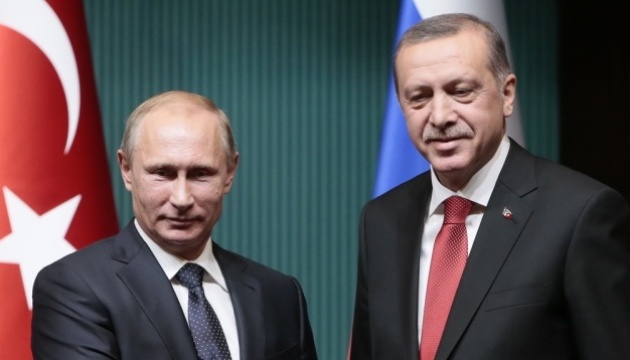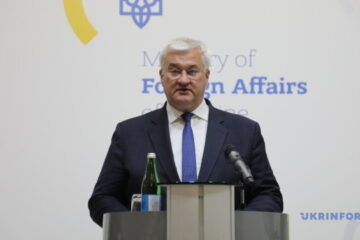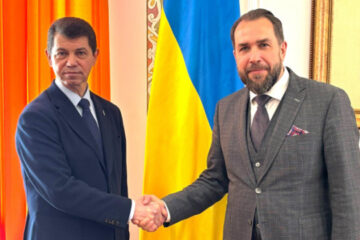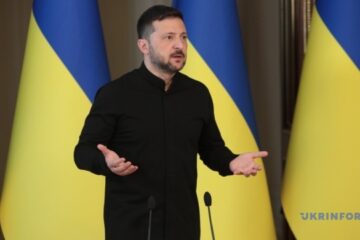Turkey is poised to host Ukraine-Russia peace talks on May 15.
On May 15, Ukrainian President Volodymyr Zelensky is ready to meet his Russian counterpart Valdimir Putin for a pace talk in Istanbul, mediated by Turkish President Recep Tayyip Erdogan. And there is even a possibility that U.S. President Donald Trump, who will be visiting Saudi Arabia and Qatar on May 11-14, may attend the meeting, although no such plans have been officially announced so far.
Putin, caught in a vice between a ceasefire and potential fresh and tougher sanctions, suggested yesterday that Ukraine and Russia meet in Istanbul on Thursday, May 15, to continue the bilateral peace negotiations that began, and broke off, and ended nowhere more than three years ago. Much water has flowed since March 2022, and a return to that juncture in time looks quite illogical, especially given Russia’s demands at the time (renunciation of NATO membership aspirations, reduction of the army, ban on the deployment of foreign military personnel). Moreover, Putin, in his yesterday’s press appearance, did not say a word about the 30-day ceasefire, on which the Coalition of the Willing insisted at their Saturday gathering in Kyiv. President Trump too initially stated the need for a ceasefire, but in a post on his Truth Social platform late on Sunday, he demanded that Ukraine immediately agree to peace negotiations, even prior to reaching a ceasefire deal. Kyiv’s response was not long in coming. President Zelensky proposed a face-to-face meeting with Putin on May 15, in Istanbul. The Kremlin has, so far, not responded to this proposal.
The topic of ending the war will be raised also on May 14-15 in Antalya, Turkey, where an informal meeting of NATO foreign ministers will take place. This meeting is a “clock check” ahead of the NATO Summit of Heads of State and Government, which will be held in The Hague, the Netherlands, on June 24-25, 2025. The top diplomats from 32 countries, at a meeting presided by the NATO Secretary General, will talk about the Alliance’s security priorities, including increasing the Allies’ investments in defense and ending the Russian-Ukrainian war. The U.S. Secretary of State, Marco Rubio, is known to be attending the meeting alongside his European allies.
THEORY AND PRACTICE OF PEACE NEGOTIATIONS
A comprehensive and unconditional ceasefire should mark the first milestone and a prerequisite for negotiations on achieving a just and lasting peace in Ukraine. Kyiv and its allies firmly uphold this position. The Coalition of the Willing stand with Ukraine in supporting an unconditional and comprehensive ceasefire in Ukraine for 30 days, which is to begin on May 12. Should Moscow refuse this plan, it will face a fresh package of tougher sanctions from the European Union, coordinated with similar sanctions from the United Kingdom, Norway, and the United States. Ukraine and its European partners uphold a unified position on that matter.
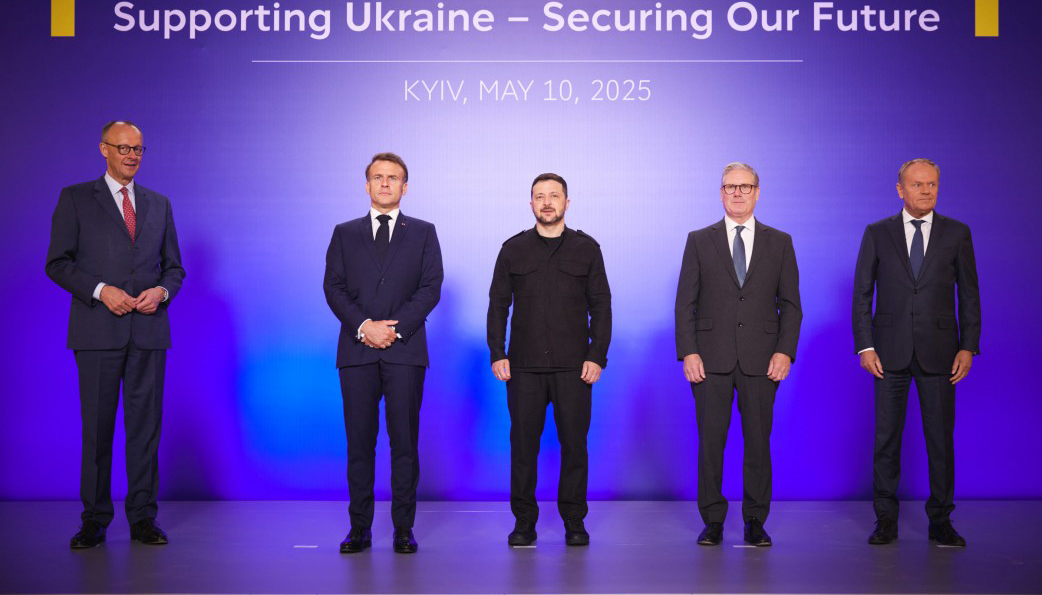
Photo courtesy of the Office of the President of Ukraine
President Zelensky, in previous statements, stressed that the willingness to sit down at the negotiating table with a terrorist country that has killed tens of thousands of Ukrainians is a big compromise on the part of Ukraine. And for the Ukrainian side, a ceasefire will be a greenlight to start peace negotiations. But not everything is as simple in reality as in theory. Let’s start from the reality.
Theory and world practice of negotiations suggest that a ceasefire is the first preferrable step toward, or, rather, an indispensable prerequisite for peace negotiations, but is not a mandatory prerequisite. History remembers conflicts in which peace negotiations began before a ceasefire deal was officially announced. These were primarily either internal conflicts or where hostilities had already come to naught. Historians cite as examples the Vietnam War, the conflict in Colombia, and hostilities in Bosnia and Herzegovina (the latter is an example of a partial ceasefire). But drawing a historical parallel between these conflicts and the Russian-Ukrainian war is not entirely appropriate. Basically, in most cases, peace negotiations were preceded by a ceasefire, a requirement enshrined, in particular, in the UN resolutions regarding, for example, the conflicts in Syria and Libya.
The UN Charter outlines the methods or procedures for the peaceful resolution of international disputes as follows: negotiations, mediation, conciliation, arbitration, judicial settlement, an appeal to regional authorities or other peaceful means or peace conference, proximity talks, etc. The 1899 and 1907 Hague Conventions for the Peaceful Settlement of International Disputes provide that, in case of serious disagreement or conflict, before an appeal to arms the Signatory Powers agree to have recourse, as far as circumstances allow, to the good offices or mediation of one or more friendly Powers. But Powers, strangers to the dispute, have the right to offer good offices or mediation, even during the course of hostilities.
What is the difference between good offices and mediation in international law and international relations? The term ‘good offices’ under the UN Charter refers to all diplomatic and humanitarian initiatives by a third country or a neutral institution whose purpose is to resolve a bilateral or international conflict or to bring the parties to the negotiating table. “Good offices” implies a more discreet action, limited to initiating direct negotiations between the parties concerned without active participation, whereas a mediator generally takes a more active part in the discussion and is often expected to suggest some solutions to the problem. A mediator participates in the negotiations, actively influences their course. According to the theory, a mediator is empowered to make proposals on the merits of the dispute, but is supposed to refrain from providing assistance to either of the parties to the conflict, must respect the sovereign rights, honor and dignity of the State parties involved in the dispute. Therefore, mediation requires the consent of both parties to the conflict.
Recall that Turkey, in March 2022, declared itself a party just providing good services, but now is claiming the role of a full-fledged mediator in the negotiations.
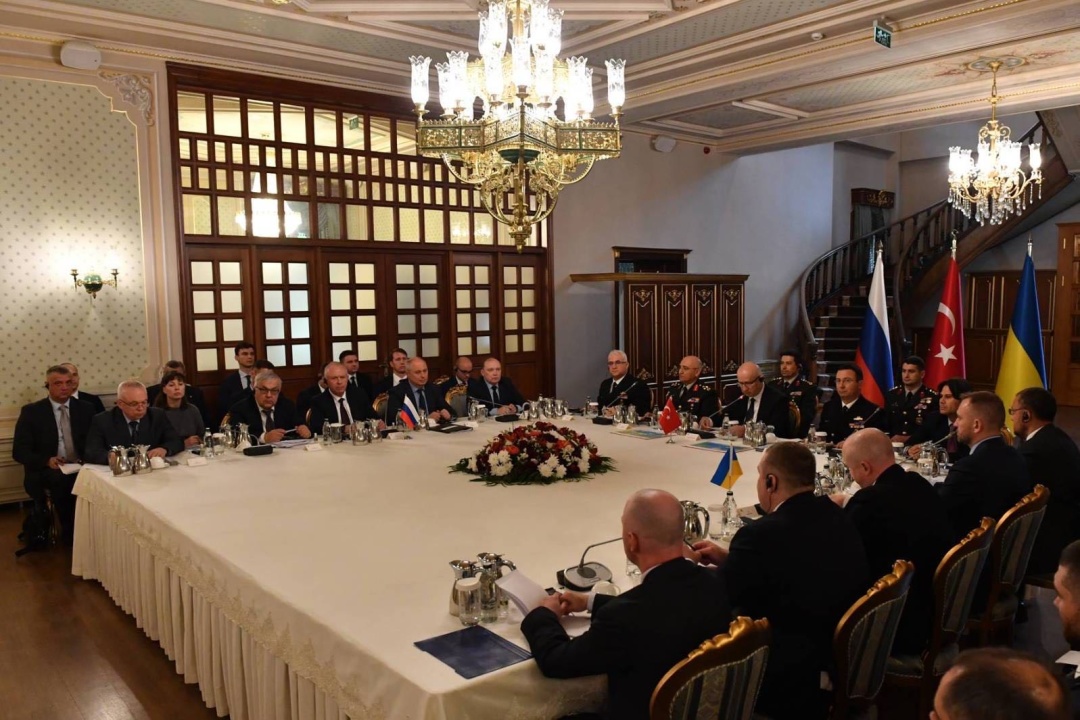
Photo via twitter.com/tcsavunma
TURKEY: MEDIATION EXPERIENCE AND RESULTS
In Russia’s war against Ukraine, Turkey has taken on an active position on reconciliation from the very beginning of the conflict. Negotiations in Antalya between the Ministers of Foreign Affairs of Ukraine and the Russian Federation, Dmitry Kuleba and Sergey Lavrov, on March 10, 2022, ended up in nothing. As the Minister of Foreign Affairs of Ukraine explained at the time, Lavrov was not authorized by Putin to make any decisions, and he came to Turkey just to listen to and once again publicly release Russian propaganda narratives, convincing that Ukraine provoked Russia’s attack.
Despite the lack of results during the Antalya ministerial meeting, Turkey managed to organize negotiations in Istanbul at the end of March 2022. The meeting of the negotiating teams, which later became the subject of speculation from Moscow, showed that the parties could talk and agree on something… But that didn’t last for long. When the bloody crimes committed in the Kyiv region by Russian invaders were revealed, the consultations that were held after the meeting in Istanbul, which gave hope for a quick end to the war, were brought to a halt.
The mediation initiatives that Ankara continued pushing for turned out more successful. Together with the UN, on July 22, 2022, an agreement was reached on the safe transportation of grain and food produce from Ukrainian ports. During this time, 33 million tons of grain were exported from Ukraine, including to the most needy countries in Africa and Asia. Emphasizing the success of this form of cooperation (signing agreements not directly, but with intermediaries, with Turkey’s participation in implementing the initiative on an equal footing with representatives of Ukraine, Russia, and the UN), President Erdogan has repeatedly proposed taking this example as the basis for peace agreements. But a ceasefire should also be a prerequisite for this. The Black Sea Grain Initiative operated for almost a year and ended due to Russia’s unilateral withdrawal from it in July 2023. The termination of the agreement was followed by missile attacks on Odesa and Mykolaiv by the Russian Federation who launched 118 strikes on Ukrainian ports in less than two months, according to the Ministry of Infrastructure of Ukraine, and destroyed more than 280 thousand tons of grain stored in Ukraine. Currently, Ukraine retains the capability to control the Black Sea shipping routes, this due particularly to the use of multirole naval drones.
Another positive case of agreements reached with support from Turkey was the release of the Azov commanders from Russian captivity in September 2022 and their return home in July 2023. In addition to these effective examples, Turkey did not cease its efforts to achieve a ceasefire, reach a just peace (this is exactly the sequence that Ankara sees as correct), facilitate the repatriation of Ukrainian children abducted by Russia, and resolve humanitarian issues. At every opportunity, President Erdogan declares his support for the sovereignty and territorial integrity of Ukraine and his readiness to provide a platform and make every effort on his part to establish a stable and lasting peace in Ukraine. It seems that this hour of triumph for fulfilling the commitment may come in the near future.
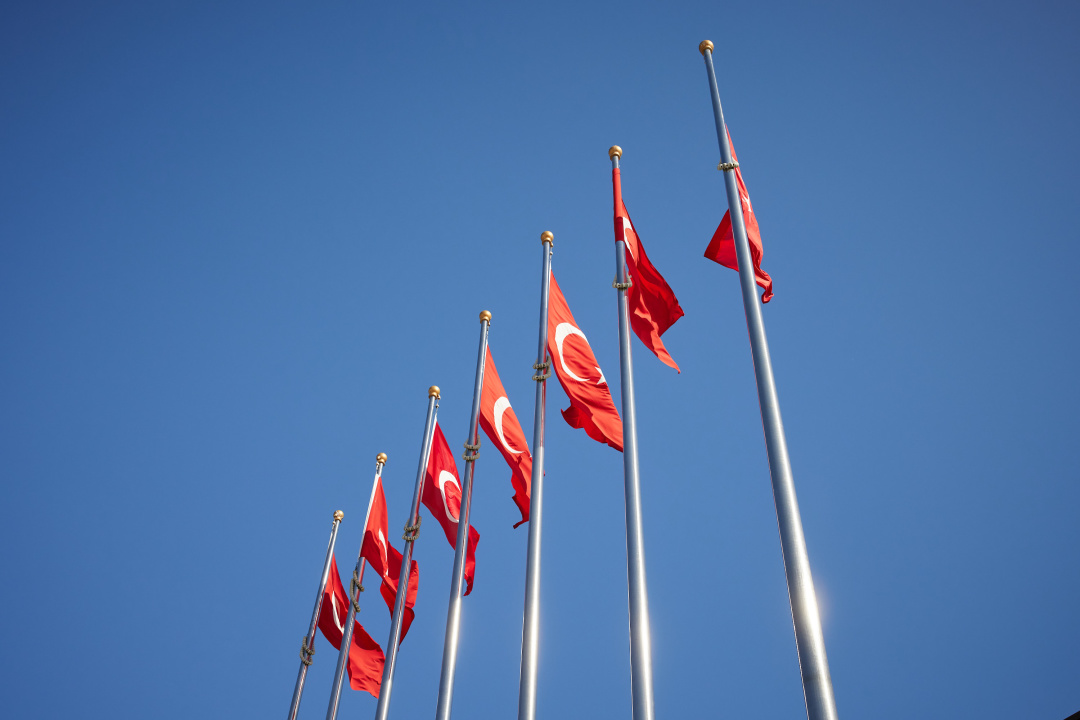
TURKEY AS A PEACEMAKER: ECONOMIC AND POLITICAL BENEFITS
The venue where a peace agreement between Ukraine and Russia can be signed will become historic, without exaggeration. This venue, the negotiation process proper, as well as the leader of the country where it will happen, will be written into history textbooks. President Erdogan is ready for such a historic role. “We will not miss this historic moment,” he said yesterday in a conversation with his French counterpart, Emmanuel Macron.
In 2022, the Turkish parliament initiated the nomination of President Erdogan for the Nobel Peace Prize “for his efforts to establish a peace between Russia and Ukraine.” The conflict continued, and the Nobel Peace Prize was awarded to other figures. Then the Prize came to the Ukrainian Center for Civil Liberties, which became the first in the history of independent Ukraine to receive that high award, along with the Russian organization Memorial and Belarusian human rights champion Ales Bilyatsky. Now, a new window of opportunity “with a view” on the Nobel Prize Building in Stockholm is opening up for President Erdogan.
But the Turkish establishment is not guided by concerns about the image alone, because Turkey has significant economic benefits acting as a peacemaker. Ankara, incidentally, did not support sanctions against Russia and continued trade and economic relations with it. Against the backdrop of major foreign companies’ withdrawal from the Russian market, Turkish businesses were quick to take their place. Turkey committed to join the Russia sanctions if they are imposed at the UN level. In the meantime, Ankara has continued vibrant trade with the Russian Federation, purchasing large amounts of Russian gas at discounted prices, signing gas deals with European countries, securing gas payments bypassing sanctions from foreign banks (which was agreed with the U.S.) and gaining other benefits. As Ankara has repeatedly stated, it is this neutral position, in particular refusal to join in sanctions against Russia and continuing dialogue with Kyiv and Moscow that allow Turkey to maintain a balanced approach to both sides of the conflict and become a mediator.
Another benefit, a geopolitical one, was won by Turkey not by itself but with support from the Ukrainian Defense Forces. Whereas before the Russian-Ukrainian war, leadership in the Black Sea region had to be shared with Russia, now the Turkish fleet is the largest and most powerful naval force in the Black Sea region. By applying the provisions of the Montreux Convention and closing the Straits for all warships at the beginning of the war, Turkey demonstrated its leadership and commitment to the principles of international law, and also secured for itself the largest naval presence in the Black Sea.
After the coming of new administration to the White House, Turkey’s potential role as a mediator has lost its weight. The initiative, in particular, was seized by Riyadh. At the beginning of his presidency, Donald Trump seemed to have overtaken Turkey. Behind-the-scene contacts were taking place, but a phone call or a visit could not be agreed upon for several months. The phone call, which took place on May 5, became a political “jackpot” for the Turkish leader: Trump proposed partnership in ending the war, reaffirmed his commitment to defense cooperation (the supply of F-35s remains highly relevant for Turkey) and invited Erdogan to visit Washington. The visit is being prepared for June, and President Erdogan now has the opportunity to go on a visit “not empty-handed”, but with the initial results of the negotiations between Ukraine and Russia or even a peace agreement, which President Trump vowed to achieve in the first days of his presidency, but then had to concede that the task was not as simple as it seemed initially.
WHERE WE ARE NOW AND WHERE WE ARE HEADED
As of mid-day Monday (the time this text was handed over to the editor for review), events related to the negotiations in Istanbul developed as follows. We have a statement from Putin suggesting direct negotiations with Ukraine “to begin from where they were interrupted” in 2022, in Istanbul, Turkey. At the same time, the statement does not say a word about the 30-day ceasefire that the Coalition of the Willing insists on. Putin’s proposal once again looks little like a serious intention to achieve a peace deal, but rather as an attempt to avoid sanctions the Allies are threatening with in the event the ceasefire ultimatum is rejected, an attempt to stall time and another deceptive maneuver by the Kremlin.
There is one important nuance here: by announcing that Turkey is ready and willing to host the peace negotiations, President Erdogan made it clear for Putin that Ankara agrees to negotiations to be held in Istanbul, which “will lead to a permanent settlement”. That is, this is a warning to the Kremlin that hospitality and diplomatic assistance should not be exploited in some schemes aimed not at achieving peace, but at delaying peace negotiations and continuing the war.
We also have a reaction from Europe and the USA. In a comment to Ukrinform before the start of Sunday’s diplomatic “ping-pong,” the head of the European Union delegation to Turkey, Thomas Hans Ossowski, said that the EU had a positive assessment of Turkey’s possible role as mediator. The Elysee Palace, in a statement released on Sunday, insisted on the need for a ceasefire so that the Russian-Ukrainian meeting at the highest level could take place this Thursday, on May 15. Polish Prime Minister Donald Tusk said the world was waiting for a unanimous decision on an immediate and unconditional ceasefire.
The U.S. President, on the other hand, believes that the opportunity for de-escalation should be availed of even without a ceasefire as a precondition for peace negotiations: “Russian President Putin does not want a ceasefire agreement with Ukraine, but rather wants to meet on Thursday in Turkey to negotiate a possible end to the bloodshed. Ukraine should agree to this, immediately. At least they will be able to determine whether or not a deal is possible, and if it is not, European leaders, and the U.S., will know where everything stands, and can proceed accordingly!”.
In late hours the same day, President Zelensky said that he expects Russia to cease fire from Monday, May 12, and will personally wait for the Kremlin leader Vladimir Putin in Istanbul on May 15. At the moment, the ball is clearly in Russia’s court, and it will be clear in the coming hours what the Kremlin’s maneuver will be like.
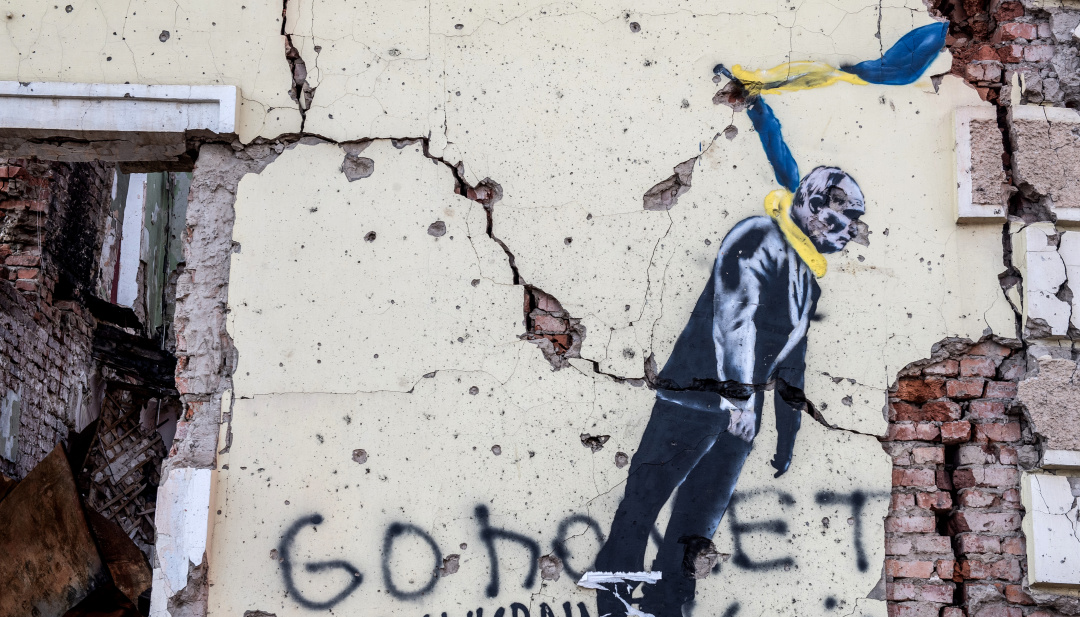
Photo via AA
THE VICTIM MUST NOT BE FORCED TO SURRENDER TO THE AGGRESSOR JUST FOR THE SAKE OF THE WORD “PEACE”
The Turkish media are currently full of flashy headlines about a soon end to the war and praising Istanbul as the center of world peacemaking. A Turkish media outlet is convinced that “A new world is being built in Istanbul,” and” the world will become much better after a peace deal between Ukraine and Russia is signed on the Bosphorus”. The Hürriyet outlet refers to Istanbul a “backup exit” for ending the conflict, because this could not be achieved previously with the mediation and assistance of other countries. Therefore, the entire world will wait for the “miracle” of reconciliation to come in Istanbul. Akşam published a front-page photo featuring the aftermath of Russian attack on a maternity hospital in Mariupol on March 9, 2022, recalling the tens of thousands of dead Ukrainian soldiers and civilians, millions of displaced people and refugees, and highlighting the chance to stop the bloodshed in the coming days. Sabah calls Turkey a guarantor of peace and the only force in the region capable of bringing the confrontation to an end.
Potential Istanbul negotiations expected on May 15 have also become a top story for discussion in nightly political talk shows on Turkish TV. But policy analysts, unlike the editors of major media outlets, are more restrained and unemotional in their assessments of the situation. They believe that the peace will take more effort to achieve than a single (almost spontaneous) meeting between the leaders of the two warring countries in Istanbul. They believe that the time for reaching a truce is opportune and successful for Ukraine, saying that the U.S. reluctance to continue support for Ukraine, Europe’s assurances of support, the lack of unity on this matter within the European Union, the risk of growing civilian casualties and losses at the frontline make the situation even more complicated, tragic and almost hopeless. That being said, however, it is emphasized that the conditions for peace should not look as if a 40-million-strong nation suffering from aggression, part of whose territories are occupied, will be brought to its knees just for the sake of the word “peace”. Regarding the possibility of fresh, tougher sanctions being imposed on Russia, Turkey questions their effectiveness, saying they have been in effect during four years now but failed to bring the Russian economy to collapse yet.
The general traditionally negative attitude of the Turks towards the United States is echoed in the assessments of some analysts. In their opinion, the U.S. continues playing its game aimed to exhaust Russia at the expense of Ukraine, having turned it into a battlefield with Moscow. Some analysts regard Washington to be an unreliable ally, and predict that the U.S. will ultimately terminate its support for Ukraine, sooner or later.
Without providing long-term forecasts, the most pragmatic of the experts point out that a meeting at the level of the Presidents of the two warring countries requires careful preparation, ranging from the negotiation agenda agreed on by both parties or the circle of invited persons, to the delegation seating plan and the lunch menu. But they admit that these protocol aspects can be simplified or agreed upon during very rapid preparation, so as not to lose the chance for a start of peace negotiations and to gain hope for a negotiated settlement of the war.
Olha Budnyk, Ankara
Source: Is Putin going to sabotage the hour of triumph for President Erdogan?

